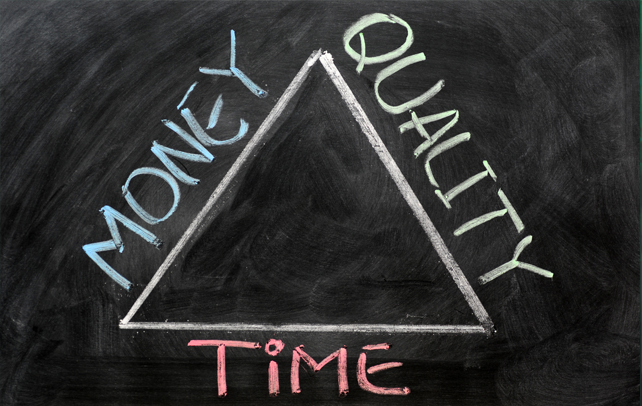Tips On Anger Management

Anger is a natural emotion, embedded in our ancient survival instincts, where any form of threat evoked a strong defence mechanism. It was accompanied by power-battle and aggression that helped to decisively establish one’s righteousness or superiority over the other. In today’s stressful times, when you are juggling with n-number of things simultaneously and striving to strike a perfect balance, it is all the more unrealistic to expect that you will never drop your poise. However, when that rage frequently surpasses all limits of sanity, challenges your social image and hurts your interpersonal equation with others, you need to take charge of your mercurial emotions. Have you seen people around you who always maintain a certain degree of composure and objectivity, no matter what? You must have come across a few frustrated, sarcastic, critical people who either develop a very apathetic view of the world or get very susceptible to the slightest provocation and yield to anger. The reactions to irritants are vastly different from people to people. Those who do not experience a maddening outburst are not different species; they have just found a better way to deal with the annoyances. If you too suffer from angry outbursts, then these anger management tips will surely help.
Tips On Anger Management
Conscious experience of anger with sentience can be productive as it helps to establish a connection with ‘Qualia’ (unique raw sensory perceptions of every individual). It is okay if you seethe with anger at every injustice and wrongdoings. All you need is a constructive way to vent it out. However, if you are someone whose adrenaline goes haywire regularly, making you say and do things that eventually make you feel repentant and embarrassed later, you need to learn the subtle art of holding yourself back. Effective anger management techniques enable one to judge the gravity of every situation and react according to the seriousness of each one of them.
Intelligent Conflict Resolution
Anger defies rational thoughts. However, don’t try to justify your case at the first opportune moment. Resist the provocation of feeling like a victim and thinking everybody is driven by the single-minded urge of proving you wrong and are out to undermine, sabotage or backstab you. Remind yourself that everybody has a point of view, which they think as right. Keep yourself open-minded so that you can toy with other possibilities and alternatives. You will be able to make your case stronger if there is zero aggression and all assertiveness in your presentation. Be it boardroom or your drawing room, honor the decision that results from a productive discussion. Never hold a grudge, there is always a next time. If you estimate a situation as a non-negotiable one, clearly state the reason why you will not be able to comply. Explain with confidence, without any panic, but be very alert that it’s not your ego that is holding up this conversation and not letting it finish unless everybody is feeding it with acknowledgement and appreciation.
Keeping Reasonable Expectation
“If someone isn’t what others want them to be, the others become angry. Everyone seems to have a clear idea of how other people should live their lives, but none about his or her own.” – Paulo Coelho, “The Alchemist”
The truth is sometimes we do get childishly furious when somebody or something doesn’t live up to our expectations. Do you realize how much of a control-freak you become when you get peeved with your child for not clearing a competitive exam when somewhere, deep down you are aware that you don’t know what will happen in the next moment? Can you control what surprise is in store for your children? Understanding that you are not in charge about what is happening around will actually make you more potent and put you in charge of your life.
Expressing Anger Is Not Essential
It is not necessary to howl, shout, or create a scene in order to make your feelings heard or to avoid IED (Intermittent Explosive Disorder) or to control your soaring blood pressure. Your stress level can reduce automatically if you do not turn hostile and allow your mind to focus on something positive. It’s not about suppressing. It’s about controlling through positive reinforcing. It’s advisable to analyze a situation in calm moments and find out what made you upset and triggered your angry reactions in the first place. Then try to find the best possible way to maneuver your mind. One can practice deep breathing, crooning a song, thinking about something completely different from what is irksome (e.g. a special moment). All these will not resolve your problem, but will definitely buy you time and discourage instant resistance.
Don’t Stop Talking, Improve Communication
Even though it’s prudent not to jump into a conclusion as soon as something unpleasant is said, do not close the door of communication. Never say, ‘I’m not answerable’ or ‘I don’t owe any explanation’. It fundamentally closes all doors of open communication. In fact, you are actually getting a high by displaying your anger. Take your time to divert your mind, but come back to it with a positive outlook of finding a solution and listen to the other end when something has been said. Re-examine your views and check if there is a need to bring flexibility in your thoughts. If you think the other idea is unacceptable, be obdurate in your mind if you have to but don’t over-impose your thoughts on others. Give them the necessary time to re-assess the situation as well.
Use ‘Anger’ As Acronym
Oliver Ross, in his book ‘The Anatomy of Anger’ has introduced this advanced concept of using ‘anger’ as acronym for better management. He advocated that we need to first focus on “A”cknowledging the root cause of anger, “N”ormalizing anger as a very common trait, thinking about “G”oals in relation to that opposing idea or people, which will make us ponder about the importance of those people in our future life or how much the idea (that you are vehemently against at) is going to impact your life few years later (which will help you disassociate with the fervency of the present), build correct “E”xpectations and then provide yourself the opportunity to “R”espond in a meaningful and cohesive manner.
The STOP Technique
Like canines, humans also exhibit obsessive-compulsive disorder (OCD). Some are seamlessly haunted by uncontrolled and undesirable random thoughts that take a toll on their health over a period. “Stop” technique is best to implement in such situations where you can loudly pronounce “STOP!” at first to put a break on this array of thoughts and you can silently pronounce it once you can arrest the cloud-formation around your mind by quietly saying it.
Cognitive Restructuring
Mind your words when you are directly passing a judgmental comment on somebody under influence of stress or anger. Avoid saying ‘I always do this’, ‘You never do that’, etc. (use ‘I would really appreciate if you always try to do it’). This statistics taken by you is definitely inaccurate if not unfair and it will evidently lead towards a deadlock situation. Also, don’t rake up issues from their graveyard to augment your validation. Deal with the present to ensure that things don’t escalate to a disgraceful level. One can learn cognitive behavioral therapy to better implement this.
It’s not the red colour that makes the bull angry, bulls are actually colour-blind. They respond to the movement of the matador during a bullfight. Animals respond to a more primal emotion than anger: Fear. Anger is a secondary emotion and definitely can be controlled with proper attempt. Always remember, it’s not just aggressive display of anger that is vicious, but passive showcasing (behaving indifferently, being nice but on a very superficial level and even apologizing at almost all opportunities) can be equally cruel. Try to maintain a balanced perspective to gain an unruffled mind.












